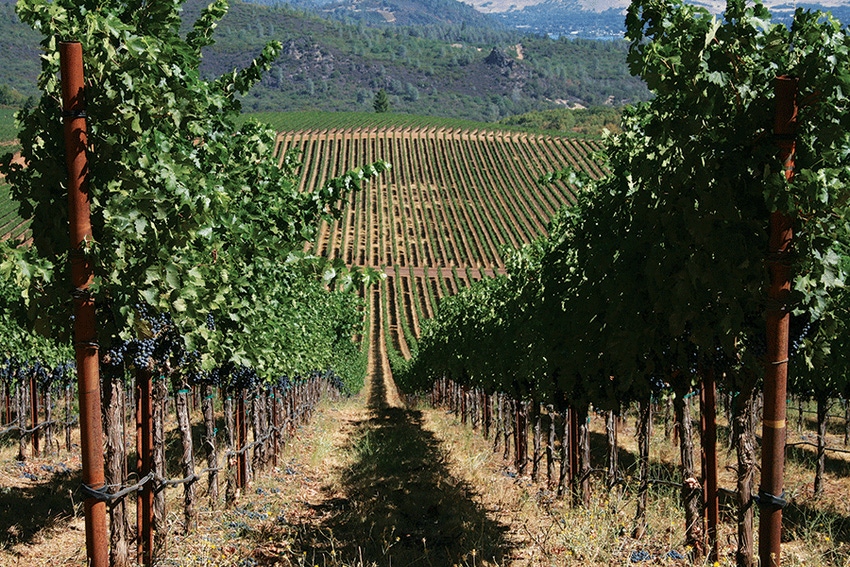
The devastating wildfires that ripped through residential neighborhoods in California’s iconic wine country last fall have prompted several research projects by university scientists.
Among the latest to be announced is an effort by the University of California Cooperative Extension, whose researchers will examine the effect that lingering smoke from the October blazes had on wine quality.
Davis, Calif.-based UCCE Viticulture and Enology Specialist Anita Olberholster and others found the opportunity to study the interplay of smoke and grape quality when the wildfires sent smoke wafting over an experimental vineyard in the Napa Valley, according to the UC Division of Agriculture and Natural Resources website.
Fires near the research vineyard provided a perfect experimental platform. Grapes that were still on smoke-exposed vines were picked, and commercially grown grapes that were considered too questionable to go to wineries were used for the research. In recent months, small batches of wine were made from the tested grapes.
The quality and taste of the wines varied, Olberholster told the North Bay Business Journal. Some had an aroma that was “actually quite pleasant and not smoky,” but all of it had an unpleasant aftertaste, she said.
The scientists are now looking for a process that will remove the smoky compounds without affecting other aspects of the flavor.
SEVERAL RESEARCH STUDIES
Smoke taint was a key concern for grapes that hadn’t been harvested before the wind-driven fires ignited Oct. 8, blackening parts of Napa, Sonoma, and Mendocino counties. Fortunately, as much as 90 percent of the harvest was already finished by the time the fires started, industry representatives say.
The smoke taint study was one of several research projects that resulted from the autumn fires. Among other research, the Wine Business Institute at Sonoma State University has been testing the fires’ impact on the Northern California coast’s wine industry.
A survey of more than 200 vineyard and winery operators in Lake, Mendocino, Napa, Solano, and Sonoma counties determined that actual impacts were localized and limited, university officials reported earlier this year. The study was launched in October after initial news reports suggested the industry was devastated by the fires.
Labor and employment data showed a statistically insignificant decrease in October and November, which was consistent with historical averages. Indirect effects were more widespread, and included what the university calls a “short-term” reduction in visitors to the region.
TREND HAS CORRECTED
“We believe this was driven by images and reports at the height of the disaster,” says Honore Comfort, the Wine Business Executive in Residence. “Fortunately, the numbers show this trend has corrected, and continues to improve.”
Early indications are that the region’s economic recovery will be strong, Comfort says in the release. The university’s team of economists, industry executives, and scientists have been touting these findings in an effort to reassure consumers and media.
Additional UC research is focused on other segments of agriculture that were affected by the fall fires. Kate Wilkin had just been hired as a forestry and natural resources advisor for UCCE in Sutter, Yuba, Nevada, and Butte counties when fires broke out in that region at the same time as the wine country fires. Much of the burned ground was grazing land.
She is helping residents and businesses rebuild in a more fire-resilient way, while also studying the behavior of fires in areas where underbrush had become overgrown, according to the university.
About the Author(s)
You May Also Like






